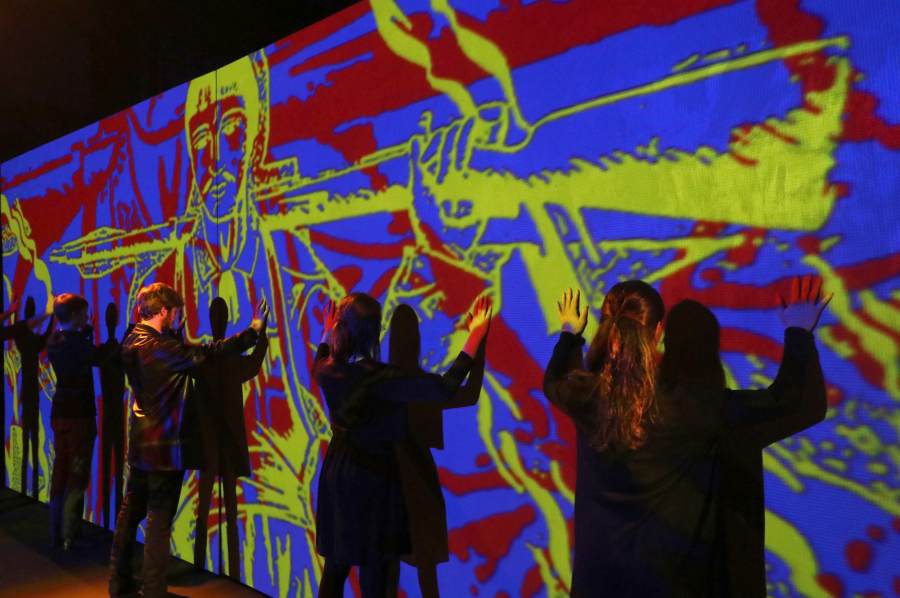

1917-2017: Tychyna, Zhadan & the Dogs, by the collective Yara Arts Group, is ambitious, and if you choose to attend, for real, good for you, you’re ambitious yourself. This play concerns itself with the fires of revolution and utilizes a number of performance styles to express the idea of revolution. But, it does not ultimately coalesce to make one strong statement, and if you wish to exit the theater with one unifying message, you may be disappointed. But, for me no matter, all the different elements individually project a great deal of passion, the spirit of revolution, and that seems to be what the group was after.
To see Tychyna is to deal with its structure. Though there is, clearly, a great deal of source material that director Virlana Tkacz and the company have drawn from, there is really no way to grasp at it. The play moves as such: a lecture in the lobby, then an effective take on the poets theater of, like, 40-plus years ago, with a pinch of the contemporary European stage through a rock show and a projection design, then a dance party. Yeah! So it’s great, and it’s fun, and there is something there, but the source material has been transformed into a performance expression.
The lecture — which is energized and engaging and gets old kinda quick — frames the context. It recounts the revolutions that pre-empted the Soviet revolution in 1917, which I suppose sets up our show in the house, stretching from 1917 to the present day. The poets theater work hits all the marks: expressive bodies reciting the text, one performer finishing the thought of another. This was inter-spliced with musical performances of a bandura, a Ukrainian lute-harp, and a rock concert by a group called The Dogs. The experience of this was a washing over of passionate elements, and while they moved from one to another in a stilted fashion, together I could certainly feel the passion.
Ultimately, the work calls on the poet as a revolutionary, which is hopeful, and I can appreciate hope in the theater. If they were after a Waiting for Lefty brand of inciting action — and I believe they attempted to incite, if not action, at least movement, vis-a-vis the dance party at the end of the work — I think they barked up the wrong tree. This method of communication moves the spirit and swells up emotion, but not to a specific ends.
It is very clear that the Yara Arts Group wants each individual spectator to walk away with their own experience, because the communication is, truly, relative. For instance, a lot of the text is in Russian and Ukrainian, which is totally cool and nice to hear, but I’m not going to get what you’re saying to me. I’m certain one could connect this to a larger meaning within the work -- something about the inscrutability of the revolutionary process, or even more simply something like how our reception of revolution is often through communicative languages we are not a part of -- but, one could easily not connect to the other languages at all and fail to be affected to those sections of the piece. The play, in a sort of selfish way, seems more concerned with its volts of evocative moments than in any clear communication.